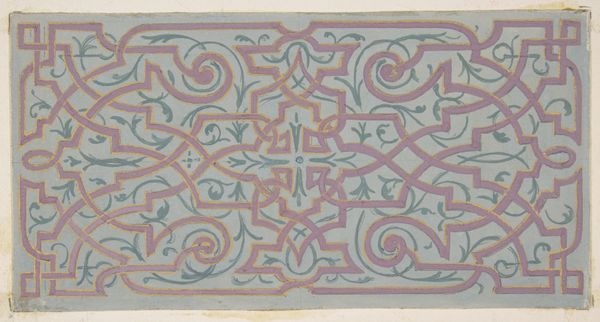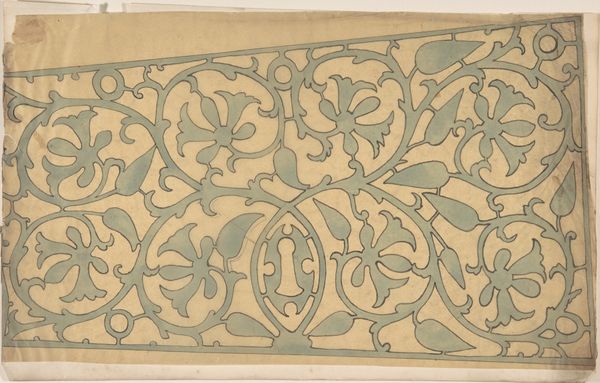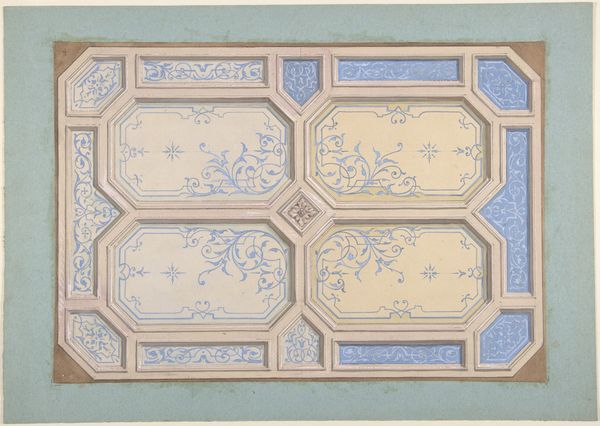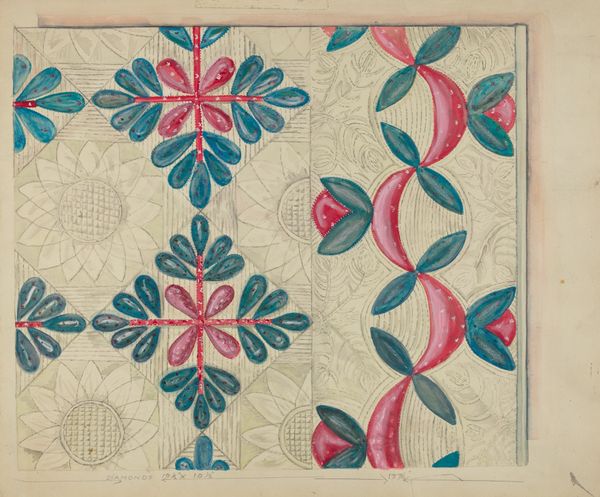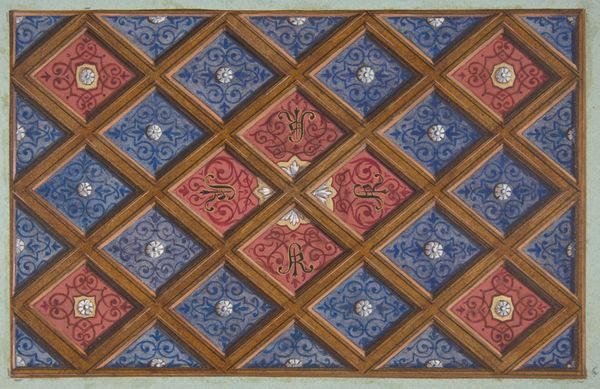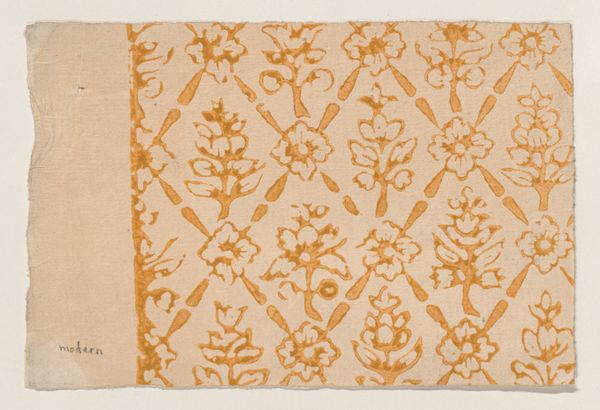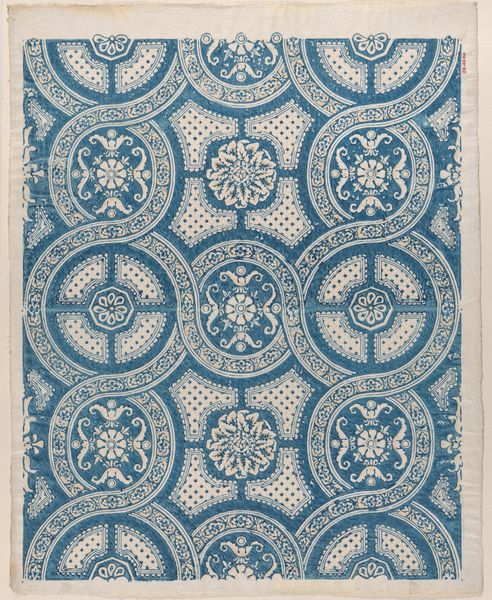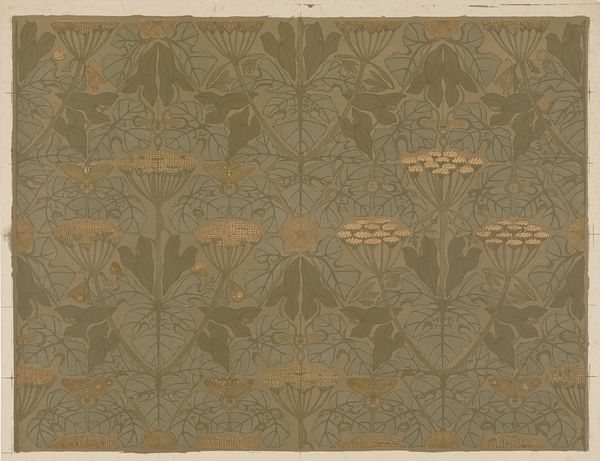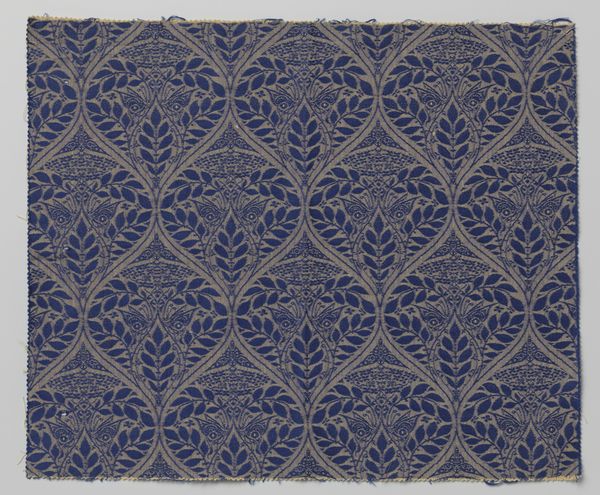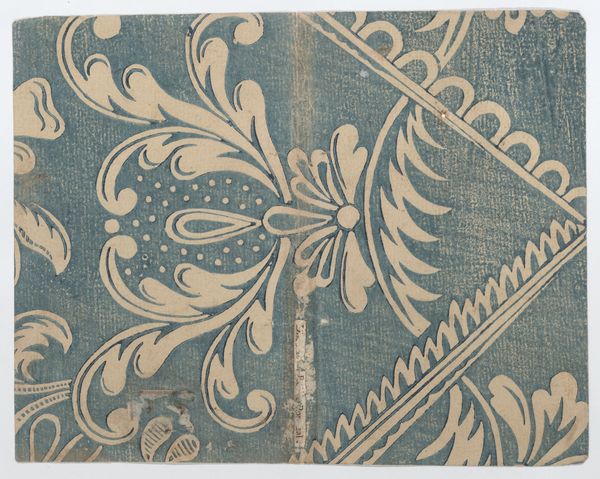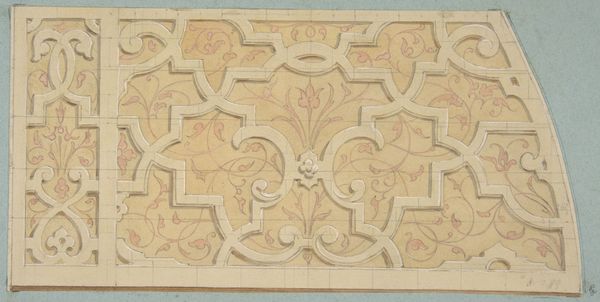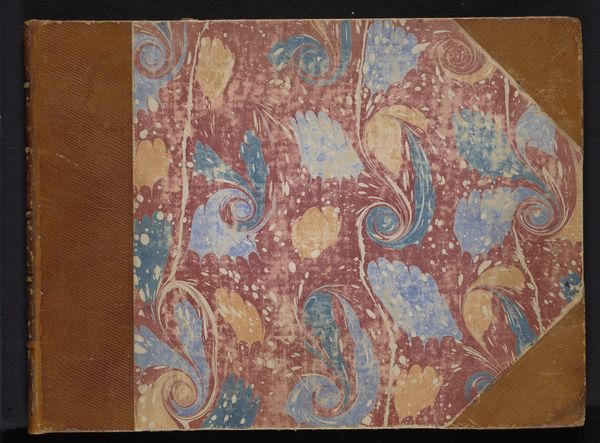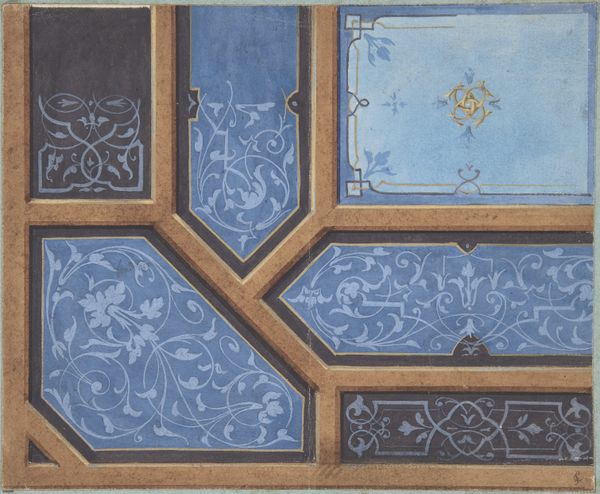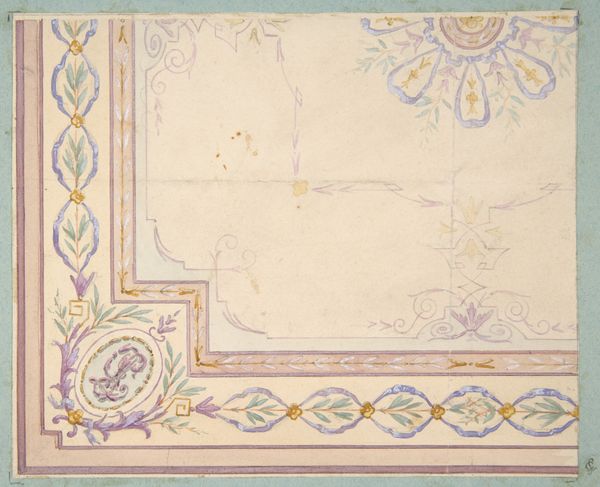
Partial design for a decorative panel painted in rinceaux 1820 - 1897
0:00
0:00
Copyright: Public Domain
Jules-Edmond-Charles Lachaise made this partial design for a decorative panel in rinceaux, in France, in the early 20th century. This type of design reflects a revival of classical forms that gained popularity in the 19th century, emphasizing symmetry and idealized natural forms. The rinceaux pattern, with its scrolling vines and foliage, was commonly used in architectural decoration and interior design to evoke a sense of elegance and order. France’s École des Beaux-Arts, where Lachaise likely trained, played a significant role in shaping the aesthetic values of the time. It promoted a rigorous academic approach, influencing artists to integrate historical styles into contemporary designs. Understanding the social and institutional contexts of art helps us appreciate how artistic creations both reflect and shape cultural values. By studying the history of design and the institutions that support it, we gain insight into the complex interplay between art, society, and the built environment.
Comments
No comments
Be the first to comment and join the conversation on the ultimate creative platform.
